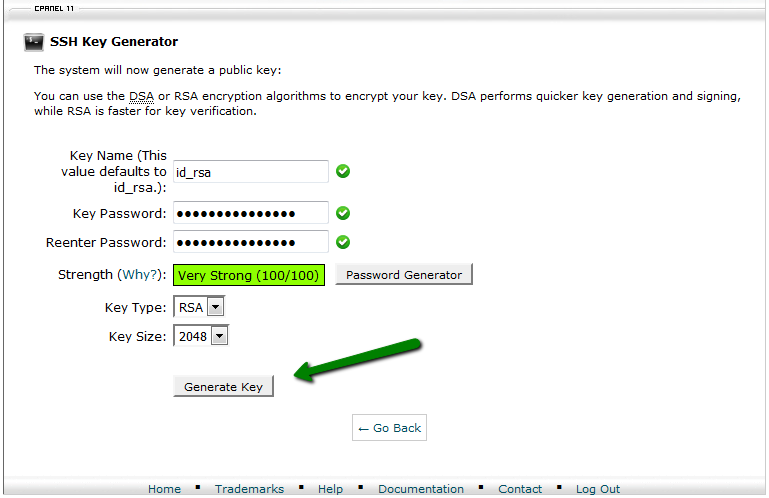Rsa And Dsa Key Generation
RSA vs DSA

Rsa And Dsa Key Generation 2
When dealing with cryptography and encryption algorithms, there are two names that will appear in every once in a while. These are DSA and RSA. Both of these are encryption systems that are in common use when encrypting content. Both of them give good results and can be employed at will. However, if there is need of their specific abilities, some differences are noted. A thorough comparison of the two is discussed below.
The DSA commonly refers to the Digital Signature Algorithm. The RSA on the other hand refers to the initials of the people who created it. These are Ron Rivest, Adi Shamir, and Leonard Adleman. The DSA was designed as an encryption algorithm. The DSA was developed by the NSA to be used by the US government as a standard for digital signatures. This signature borrows heavily from the ElGamal Signature Algorithm from which most ideas were borrowed from. RSA, on the other hand, looks at the difficulty of factoring numbers as the main aspect of its development.
The name DSA spells out its main function. This is a program that is mainly built for signing, and therefore it is quite popular with digital signatures. This however does not extend beyond the signature to the message itself. RSA, on the other hand, covers signing in encryption and encryption of the message contained as well.
As a result of dealing with digital signatures only, the use of DSA is preferred when faster key generation is needed. This is because DSA produces the keys very quickly. When faster encryption is required, RSA is preferred as it encrypts both message and signature for signing in. When in need of decryption, DSA is faster mainly due to the fact that it is specialized for a single function only. Digital signature generation work best with DSA while verification of the digital signature is faster when RSA is employed. In looking at how quickly either DSA or RSA handles a given task, it should be assessed whether fewer computer resources are used.
Ssh-keygen can create RSA keys for use by SSH protocol version 1 and RSA or DSA keys for use by SSH protocol version 2. The type of key to be generated is specified with the -t option. If invoked without any arguments, ssh-keygen will generate an RSA key for use in SSH protocol 2 connections.
A perfect balance must be found which employs both DSA and RSA, as no single encryption algorithm can be rolled out alone. Both the RSA and DSA are crucial in rolling out encryption algorithms that can be employed in the server environment and with the client as well.
To create a new key pair, select the type of key to generate from the bottom of the screen (using SSH-2 RSA with 2048 bit key size is good for. The actual key generation computation takes place. This may take from several seconds to several minutes. Then enter a new passphrase, and click Save private key to save the private key with the. @steveayre is mostly wrong. The public RSA key components (n, e) DO get generated with and are embedded into the private RSA key file created with openssl genrsa command. A separate public key file is not created at the same step though.
Both the RSA and DSA can be said to have similar cryptographic strengths. It is however the performance advantages when rolling out at specific points that make one or the other the preferred choice to be used at that specific point in time.
It can be generally concluded that the DSA is best suited for signing in and decrypting while verification and encryption can be left to the RSA. If any issue is noted with the performance, an evaluation can be done to find out if the right encryption algorithm has been rolled out.
Summary
/when-to-use-system-generated-key.html. DSA and RSA are two common encryption algorithms that can be said to be of equal strength

The performance of the two is what distinguishes one from the other
DSA is faster when generating a key than RSA
RSA on the other hand is faster at encryption than DSA
When decrypting, DSA is faster, mainly due to its great decryption capability
If you need digital signing, DSA is the encryption algorithm of choice
For verification of the digital signature RSA is the best choice.
Depending on the circumstances, a choice will need to be made, but both DSA and RSA have equal encryption capabilities and the option with less demand on the resources should be chosen.
Rsa And Dsa Key Generation 10
- The Difference Between Mediation and Conciliation - April 15, 2018
- Difference Between the Jscripts and Java Scripts - November 17, 2013
- Difference Between EJB 2.1 and EJB 3.0 - November 16, 2013